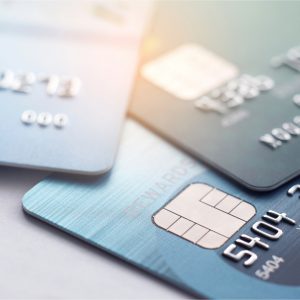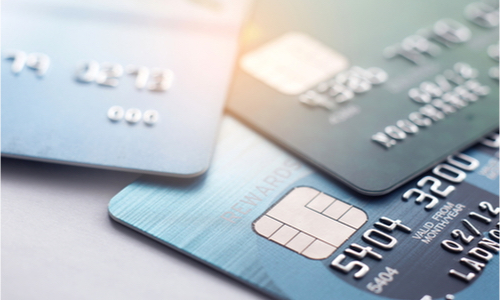Successful Holiday Budgeting

Successful Holiday Budgeting Tips
With the holiday season approaching quickly, budgeting for those holiday gifts is going to be super important. Not only will you have your reoccurring monthly expenses, but now you need extra money saved to purchase gifts for your loved ones. Here are some tips on how to prepare.
Figure out your expenses and make a list
Make a list of all your normal monthly expenses and then add all the gifts you intend to buy. Obviously, the monthly expenses should be the top priority, so once you know how much that is you can estimate how much you are able to spend on gifts or events. It’s super important to stay within you budget because nothing is worse than coming out of the holiday season in debt.
Set a limit for how much you are going to spend
Once you have a list of all your expenses, make a limit for how much you can spend. Many people don’t make a limit and overspend on their credit cards. This is a great way to end up in debt and paying interest on those gifts. No matter how special the person might be, giving up your financial freedom isn’t worth it.
Sales are everywhere
Check out the sales that are happening near you! Stretching your dollar will help you get the most bang for your buck. Huge retailers typically have flash sales or holiday deals. Make sure to have a shopping plan of where you want to go so you can check to see when their deals are. The best way to stay caught up on deals is to sign up for email alerts. It will save you the hassle of looking online every day to figure out if they are having a sale.
Don’t use a high interest credit card
Many banks and retail stores will offer discounts if you sign up for their credit cards, but then hit you with high interest rates. Credit Unions will offer the lowest rates available and many times have 0% APR for 12 months. This could be super beneficial when it comes to spreading out the cost of the gifts. Another option would be to go cash-only shopping so you can be sure that you won’t end up in any debt.
The holiday season is a fun time to spend with friends and family. Budgeting will help make this holiday season affordable and stress-free if done correctly!
What's a HELOC and how do I use it?

What’s a HELOC?
HELOCs resemble a second mortgage and also function like a credit card. You are able to draw from this fund whenever needed. Therefore, you don’t have to withdrawal it all at once. The main difference between a HELOC and mortgage loan is that a mortgage is used to buy a home. You never see the money since it’s given to the seller and you pay monthly for a certain period of time. A HELOC is a line of credit that uses your home as collateral that you can withdrawal from at any time. The interest is only paid on the amount that you use. For example, you could get a $50,000 HELOC and only use $10,000 of it. You will only pay interest on the $10,000 that you borrowed.
Six Smart Ways to Use a HELCO
Renovate rooms
This is a great way to increase your home’s value. One of the best rooms to start with is the kitchen. Many homebuyers look for a modern kitchen that is updated with current trends. Using a HELOC to pay for this renovation is a great way to get the most bang for your buck. After your kitchen, focus on bathrooms and then bedrooms.
Convert unused space into living space
Finish your basement or convert unused space into something cozy and livable. This is a great way to add more space to your current layout and will make potential homebuyers intrigued with the amount of usable area in the home. You could also consider adding a mother-in-law suite somewhere in the layout. Adding something like this has the potential of adding quite a bit of value to your home.
Give your home a makeover
Replace siding, doors, garage, etc. for a better outdoor appearance. Having a nice outside appearance will attract buyers and will allow your home to stand out in the neighborhood. It’s amazing what a fresh coat of paint or a new roof can add to a home’s appearance!
Pay off debt
You can pay off high interest debt such as those typically associated with credit cards. Be careful if you choose to do this because you are gambling your home on it. HELOCs will offer a lower interest rate but have a high level of risk associated with them. Make sure you have a great plan in place to ensure you are able to pay off the HELOC and not default.
Pay for a vacation, college, car, etc.
Along with home improvements and debt consolidation, a HELOC can be used to pay for “fun”. Although this is a very tempting option, make sure you have a solid plan on paying back the loan. REMEMBER… your collateral is your house. If something were to happen and you weren’t able to pay the loan back, you will lose your home!
HELOCs are great tools to use when used correctly. Whether it’s fixing up your home, consolidating debt, or having a little fun; BrightStar CU can get you set up with a low-rate HELOC!
What to Look for When Applying for Credit Cards

What to Look at When Applying for Credit Cards
There are many different reasons to apply for a credit card. You could be a student looking to build credit, a new parent looking to spread out payments on baby gear, or a smart shopper wanting to receive cash back. It’s very important that you don’t go overboard with charging everything to your credit card. You need to remember that you eventually have to pay the money back.
There are many things to consider when picking the perfect credit card to apply for.
Top 4 Things to Know About Your Credit Card
- Annual Percentage Rate (APR) is the cost of borrowing on the card. This comes into effect if you don’t pay the full balance each month. Each card has a different APR and is calculated by your credit worthiness and other factors. Having a low APR will allow you to pay less in interest if you’re planning on keeping a balance. We recommend paying off your card in full each month so you don’t waste money on these interest payments.
- The minimum payment is the lowest amount that you need to pay each month to avoid a fee. If you plan on not paying off your balance each month, it’s important to understand the minimum payment amount that you are required to pay. You will need to make sure you can afford the minimum payment each month so you can budget accordingly.
- Rewards can come in the form of discounts, vouchers or merchandise depending on bank. These points add up after each qualifying purchase until you have enough to cash out on the reward. One important thing to look at is to make sure the card you are applying for has qualifying stores that you use. Otherwise, this rewards system isn’t very useful since you won’t be shopping where you have the potential of earning rewards.
- Cash back is an important thing to look at because who doesn’t like saving money? Typical card will offer around 1.5% on qualifying purchases. Again, you need to look at where you will earn cash back. Steer clear of cards that only offer cash back at certain stores. There are plenty of credit cards out there that will give you cash back on ALL purchases.
Now that you know the basic components of a credit card, you’re ready to start applying! It’s so important to start building your credit history when you’re young because it allows you to get lower rates on auto loans, mortgages, etc.
Should I Buy a New or Used Car?

What to Consider When Buying a New or Used Car
Wouldn’t it be nice to just snap your fingers and have a new car show up in your driveway? Without this ability, you’re going to need to decide whether or not you want to purchase a new or used car. There are pros and cons to each, so developing a personal buying strategy is key.
Advantage of a New Car
It’s never been driven! You know the exact history of the car and know it will be reliable. That being said, you usually receive a warranty for the first few years. This is great because it’s less out of pocket expenses if something was to go wrong with the car. Generally, the first few years don’t see a lot of repairs other than maintenance, but it’s a great thing to have.
Disadvantage of a New Car
The second you drive that new car off the lot, the car will lose several thousands of dollars due to depreciation. It will be the most expensive two minutes of your life, so enjoy it. Depreciation has the biggest impact on your car during the first two to three years. This can be a little scary, especially if you’re in the hole with the auto loan. That’s why it’s very important to shop around for the best deals and rates so that you can get equity in your car fast. Buying GAP insurance is another way of protecting yourself when buying a new car.
Advantage of a New Car
New cars have the new car scent, fresh seating, and the latest technology. These things are important to many people, so deciding if you want to spend the extra money will be a decision you will have to make. An easy way to do this is to make a list of needs and wants. Once you figure out those two categories you can start looking for a perfect match.
Advantage of a Used Car
A used car has already taken the largest hit on depreciation, so you aren’t losing value right away. By not taking the large hit, you almost immediately have equity in the car. This is a huge bonus and will give you peace-of-mind. Provided below is an example of how this would be useful.
- Sarah took a loan out for a new car totaling $20,000. The next week, she decides that she doesn’t like it anymore and wants to sell it. Since the car took a major depreciation hit when it left the lot, its value is now $17,000. In essence, she lost $3,000 in a week.
With a used car this hit is much less, and you get equity in the car much faster.
Disadvantage of a Used Car
Determining what condition the car is in can be a total shot in the dark. Since the car is new to you but used by someone else, the condition is unknown unless a maintenance check is done. Certified pre-owned vehicles have been tested and checked for imperfections, so you approximately know what condition the vehicle is in. With a new car, you know EXACTLY what condition it is in.
Unfortunately, there isn’t a one size fits all answer when it comes to car shopping. When making a decision, you need to determine what you need, want and can AFFORD!
How to Use a Student Credit Card

When it comes to credit cards it’s very important to know key factors on how to use them correctly, especially as a student. If you don’t know how to properly use them, you could end up with a bad credit score or worse: end up in debt. To help prevent those scenarios, here are some tips you should know as a student.
You Choose Your Credit Card, not the Other Way Around
It’s important to not just apply for a credit card because you want a “free” new item, like a shirt or phone case. It’s important to research the company and see if the card you want is actually a good offer. Make sure to check for fees, interest rates and of course, compare it to other companies to see which offer is better and benefits you the most. Like stated in thebalance.com, the best credit cards for students to look for have no annual fees, low interest rates, and a low credit limit.
One Credit Card is Enough
As a student, you have a lot to pay for, especially when you think about your future. College includes having to pay for textbooks, food, rent, parking, and membership fees. Having just one credit card can help limit your spending. This will help you to not build up a ton of credit card debt. With one credit card, you can pay for most of those expenses and only focus on one card to pay off.
Control Your Spending
Don’t go over your credit limit! As a student, you might not focus on how much you spend, but it is very important to understand that getting too close to your credit limit makes it more difficult to pay it back in full at the end of each month. Also, know that credit bureaus do not like when you use more than 30% of your credit limit. To avoid overspending, keep track of the items you purchase and record them so you know if you are getting close to your limit.
Your Card, Your Money
Don’t let someone else use your card! When you apply for a credit card it’s for you to use, not anyone else. It’s your credit card, so it’s your responsibility. Allowing a friend or even a family member to borrow your credit card, even if they pay you back, is risky. Also, lending your credit card can cause you to get close to your credit limit because you don’t know how much they are planning to spend.
A Credit Card is Credit, not Debit
Credit cards and debit cards are two different things. Understanding that a credit card is not a debit card is important; don’t take cash out. This is known as a cash advance; credit card companies can charge from 2-5% cash advance fees and other fees due to the withdrawl. It’s important to stay away from cash advances and to read over the terms that go along with cash advances from your credit card company.
Credit cards have many uses, but it’s important to use them correctly. Keep these tips in mind once you receive your first credit card.
6 Tips on Saving Money this Summer

Summer is the perfect time to re-evaluate your saving’s plan. Here are a few tips on how to keep more cash in your pockets this summer:
A Budget = Your Best Friend
Creating a budget can really help you stay in control of your money. It allows you keep track of how much you are able to spend on certain items and it’s designed to make sure you avoid overspending. With a budget in place, you’ll stay within your means and pocket more savings. The goal of creating a budget though is to stick to it! Be committed to seeing it through to have success.
Look For Free Fun
Going out to have fun is necessary at times, but try to do it a bit less when you want to save extra cash. If you do want to get out of the house, there are a variety of free activities you can do out and about. There are always free festivals or events going on in the city, you just have to look for them.
Deals Are Golden
During summer time, we all have our adventures planned. But finding deals through the variety of apps and sites available are crucial to having a good time for a low price. You’ll be able to have fun and do it guilt-free when you’ve got a good deal, discount or coupon in tow.
Make Your Own Food
Instead of going and spending $20 dollars a day, you can save more money by meal prepping weekly or making your food at home. You’ll be surprised how much money you can actually pocket if you don’t eat out! As an added bonus, you also become a better chef.
Know Needs From Wants
Try not to impulsive buy; think about whether you really need something or just want it. If you don’t really need it, then save it. The more willpower you have in suppressing each and every want that comes your way, the more in control of your finances you’ll be, and the more money you’ll have in your wallet.
The Big One: Give Your Money A Home!
What better way to save money than to open up a saving account?
At BrightStar Credit Union, we’ve got a variety of options when it comes to saving. See our saving’s options here.
Money comes and goes easily, so be intentional with your cash and what you’re doing with it to become a better saver. The goal for this summer? Have fun, but ball on a budget.
5 Ways to Clean Up Your Finances This Spring

Spring is in the air, but your finances don’t have to be. With spring cleaning on the brain, now is the time to tidy up that closet and more importantly, your wallet.
Fortunately, recent pop culture has heightened the cleaning fix in all our minds. Recently, methods of cleaning up by category and keeping only those belongings that bring you happiness have become increasingly popular. While this method is great for optimizing your physical space, it can also be used with your finances as well.
Here are 5 ways to clean up your finances just in time for spring.
-
Clean Out Expenses
Give your bank account a clean-out by evaluating any recurring subscriptions that are on auto-pay every month and you can probably do without. For instance, you may realize that you don’t need that 500-channel cable package or magazine subscription. Don’t worry, you can still keep your Netflix subscription, but look into a family account to split the costs. You may want to consider saving money with your Amazon Prime membership by waiting a few extra days for your packages. Not to mention, this can discourage you from buying things you don’t need.
-
Create Financial Categories
Using this categorizing technique, organize your bank statements from the past few months by creating a category for each transaction. Some categories might include living expenses—such as your rent, car payment, and utilities—savings, and entertainment. Once you’ve created your categories, develop a filing system that works for you, whether it’s folders, an app or online. This will help you see where your money has been going and monitor your spending for the future.
-
Sort Out Your Credit Score
Improving your credit score is an important step in cleaning up your finances if you want to borrow or make a big purchase in the future. Start by combing through your report to check for any inaccuracies that can be lowering your score. After you’ve created your financial categories from the previous step, keep track of your bill’s payment dates to avoid missing payments. One way you can do this is by setting up automatic payments or calendar reminders.
-
Pay Off Your Debt
Your first instinct to dealing with debt may be to ignore it hoping it will disappear, but this will only worsen the situation. While you’re partaking in spring cleaning at your home and only keeping items that bring you happiness, set aside the pieces you no longer want and sell them in a garage sale. You can use the money you make to pay off some of your debt. Another way you can accumulate some extra cash is by turning a hobby into a side hustle. For example, if you like crafts, monetize your hobby by selling your works of art online or to family and friends.
-
Set and Commit to Financial Goals
Outline your short-term and long-term financial goals and plan how much money you need to set aside each month to achieve them. For many people, their primary goal is to increase their savings. While there are many ways to do this, one of the most effective is budgeting. Set a spending limit and commit to saying “no” when you reach your limit. Most importantly, track and be proud of the progress you’ve made to boost your financial confidence and inspire you to keep going.
Regardless of your financial situation, using spring cleaning and organizational techniques in your finances can help you reach your goals and tidy up your finances.
7 Tips for first-time credit card users

Credit cards are a powerful financial tool. If you use them wisely, they will help you achieve your financial goals. But as the saying goes, with great power comes great responsibility. Abuse them and you will find yourself in a world of financial hurt.
If you recently got your first credit card, here are nine tips to help you use it in a smart, financially-sound way:
1. Read the fine print
Eye-catching promotional headlines can be very appealing. But look at the details. You’ll especially want to watch for things like high annual or late fees, or additional costs attached to using the card.
2. Pay the balance in full every month
Make sure you pay off your purchases at the end of every billing cycle. This way, you’ll avoid paying interest, which, if allowed to build, can dramatically increase the total cost of your debt.
3. Use it to build your credit
Remember when we said credit cards are a powerful tool? When you pay off your balances every month, you establish a positive credit history. You demonstrate to credit agencies that you can handle the responsibility of credit. This will become important when you want to buy a car, rent an apartment or even apply for a job.
4. Treat it like cash
If you don’t have the money now (or in the near future) to pay off the purchase, don’t put it on your card. You increase your risk of accruing interest and expanding what you owe (that’s how people get into debt).
5. Look for a good rewards program (but not at the expense of a high rate)
Cards for first-time users without much of a credit history may not have exceptional rewards, but it can’t hurt to look. You might be able to find decent cash-back or mileage offers.
6. Don’t share it with anyone
Credit cards are private. Don’t let anyone use it under any circumstances, even if it’s a good friend who needs to borrow money.
7. Always check your statements
Unfortunately, credit card fraud is a very real thing. Check your statements every month to make sure there aren’t any unrecognizable charges. If you see a purchase that you didn’t make, report it to the credit card company right away.
How to Make Budgeting Fun with Your Family

Setting spending limits and crunching numbers is not exactly a traditional recipe for family fun. But you can make budgeting fun by getting a little creative. Here is how:
Talk it through
Finances are a complicated subject. But it is important for your children to learn this very important skill early in life. In order to make budgeting fun for all, make it a game. Seat everyone at the table and talk about where the money goes.
Show them the money
Ideally, you should keep record of your finances in a tangible place. A specific folder in your computer or an organized excel sheet. But let’s be realistic, creating excel formulas is hardly fun for a child, let alone a fun activity for the family.
Our suggestion: Go old school!
Set out three containers, jars, banks or baskets. Mark one of the receptacles with the word save. One with the wod spend and the final with the word share.
Use real money and coins to fill the containers each month so the whole family can see exactly how a budget works and where money needs to go. Folger recommends divvying up money according to set percentages. This is an especially beneficial method to help your tweens and teens balance their own allowances while earning real-life financial lessons.
Work toward family-fun goals
Budgets are designed to keep your present bills paid as well as plan for the future. If your family is only focusing on what they’re giving up or not getting, there’s no way your family budget will resemble anything but doom and gloom.
Instead, making budgeting fun by including goal that everyone can appreciate or look forward to using. Perhaps you can work toward a family-fun day at a local amusement park or even an extended getaway.
When planning for a vacation, Godfrey stresses the importance of involving everyone in the family on decisions from where to go and what to do to how money should be spent. A budget designed specifically for fun-in-the-sun or a first-time adventure is sure to keep your kids interested in your family’s financial planning.
Give back as a family
Teaching your kids to give back is an important, life-long lesson. Dedicating a portion of your finances will create a life lesson and a lot of fun memories.
With open communication and an eye on future fun, you and your family can make budgeting fun and support your financial goals.
3 Great Financial Skills for Young Adults

The real world is expensive, and if you are a young adult the lack financial aptitude will harm you later on in life. Being financially unaware will make you struggle not only fiscally, but emotionally as well. That’s why you need to acquire financial skills as you make your way through college, navigate your first job and learn to save for the years to come.
College-bound
College is often the first time you will experience a real sense of freedom. Gone are the days of a traditional school schedule with parents and teachers standing over your shoulder to make sure you study, eat and complete your assignments.
College may also be the first time you are faced with managing your own money to cover bills, school expenses and inevitable loan payments. To help keep you from failing Personal Finance 101, we recommend establishing a budget.
Record income from sources such as part-time job, student loans, money from parents, grants, savings accounts and scholarships.
Then record expenses: things such as books, tuition, rent, clothes, entertainment, college fees, supplies, personal care items and transportation costs. By tracking the first two months of spending, you will earn an accurate baseline of necessary and unnecessary spending and where’s there’s room in the budget for saving.
On the job
The thought of saving for retirement after securing the first job out of college may seem ludicrous.
After all, you still need to pay off college loans, rent, car payments and insurance fees.
However, saving for the future as soon as possible and investing in employer-matching retirement programs with the max amount possible are smart financial moves, according to The Balance writer Miriam Caldwell.
Remember the budget you used in college?
Now is the time to update if for the real world. Tracking your income, expenses and spending is the only way to gain control of your finances. As you progress in your career, your financial health should become more robust.
Be sure to consistently evaluate and re-evaluate your budget, plans for the future and investment options.
Credit cards are convenient, and sometimes the only resource you have to get through stressful financial times. But, they come at a high price. Sinking into credit card debt happens quickly and before you know it, you’re over your head in fees and balances you can’t clear.
To help you stay afloat, forgo any dependence on plastic.
In case of emergency
Life will throw you expensive curveballs, and without an emergency fund, your financial health will take on serious damage.
According to Investopedia writer Amy Fontinelle, any amount you can save each month in a money market account, certificate of deposit or online savings account will do wonders in establishing your financial safety net.
Be sure the account you choose earns high-interest rates, too.
By adopting smart money habits, like budgeting, you’ll create a lucrative and secure future.









